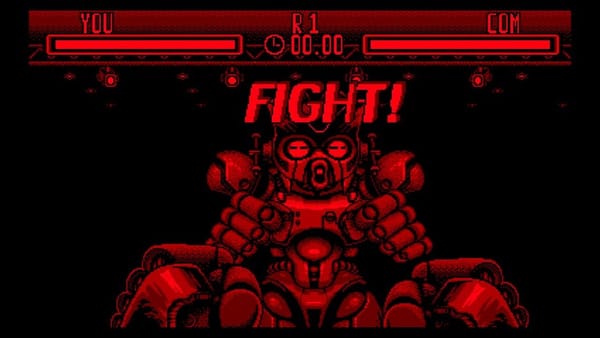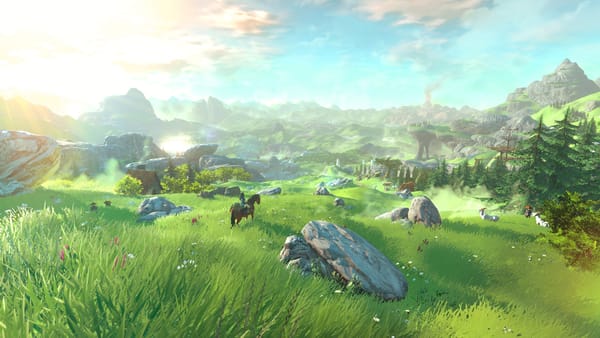#24: Consolidation prizes
Big company gets bigger and is worth more money, and the already rich grow somehow richer still.
Game development, as we know, is a risky business. But just how risky is it really these days? Money isn’t everything, of course, but I was talking recently to a veteran developer who’s been shopping for funding for the first time in a decade, and said they’ve never had it so good. There are now many more gaming-focused VC firms, wallets full to bursting, all on the prowl for the next unicorn. Companies who wouldn’t even take a call from my friend ten years ago are now coming to them unprompted. An investment market once dominated by US money is now awash with funding options from Europe and Asia. The figures are eye-watering, and only growing — and increasingly, the focus is not just on signing games, or even investing in companies. It’s on buying them outright.
Microsoft may have dominated the headlines with its eye-catching acquisitions over the past few years, and Sony has rejoined the party with yesterday’s Housemarque deal. But the game industry’s current love of consolidation spreads much further than that. EA has recently bought out Codemasters and Glu Mobile, spending over $3 billion in the process. Epic Games has snapped up 13 companies in the last couple of years. Sumo Group, Focus Home and Zynga have all been busy too. Then there’s the daddy of them all, Embracer Group, which has completed 25 — twenty-five! — acquisitions since the beginning of 2020, and is in advanced talks with another 20 companies. The economics of it are fairly obvious: a big company gets bigger and is worth more money, and the already rich grow somehow richer still. I can certainly see the logic, and the appeal, in that.
How sustainable all this is in the long term, I’m not sure. There are certainly advantages to consolidation: the cost of failure is, in theory, more easily absorbed by a bigger company, which maybe hints at a healthier, more secure, and even more creatively free-wheeling future for a business traditionally riddled with risk and conservatism. I’m personally quite comforted to think that a studio like Arkane has a Microsoft-sized safety net beneath it, likewise Housemarque at Sony.
But there are plenty of downsides to all this too. Consolidation is ultimately about power — over what gets made, when it gets released, how much it costs, and how the money is divvied up at the end. The more of the battlefield you own, the better you are able to dictate the terms of engagement. An interesting footnote in Embracer’s recent financials is that it gave up twice as much in digital-store revenue splits as it spent on game development last year; the bigger Embracer gets, the more power it will have to challenge that, as Epic has already shown.
Besides, we’ve been down this road before. Pour one out, if you will, for Lionhead, Bizarre Creations, Free Radical and all the other companies down the years who’ve been bought out, mishandled and eventually closed down. Across the internet, videogame fans are drawing up their M&A wishlists: debating who Microsoft should buy next, who Sony should acquire to keep pace, wondering when Nintendo will enter the fray and so on. History, littered as it is with the bodies of the fallen, suggests we should perhaps be careful what we wish for.
MORE!
- Remedy has inked a deal with 505 Games to publish a four-player co-op spin-off to its 2019 wonder Control. I think 505 should count itself lucky here. Its handling of Control was poor: it seemingly had no idea it had a hit on its hands, and the marketing machine only really spun into gear once everyone had realised it was brilliant. Perhaps this time will be different.
- Returnal is a “stepping stone” into “even bigger and even more ambitious games”, says Housemarque of its future under Sony — which presumably means the days of tightly focused brilliance like Resogun and Nex Machina are well and truly over. Bah.
- Ubisoft’s Mario + Rabbids: Sparks Of Hope is being made by a team three times the size of the one that brought us the stellar Kingdom Battle, which I assume means it will result in triple the number of levels, guns, enemies and allegations of harassment.
- Former BioWare punching bag — sorry, general manager — Casey Hudson has announced his new thing, Humanoid Studios.
- Polish horror-game maker Bloober Team has entered into a strategic partnership with Konami. Oh good, more grist for the Silent Hill rumour mill. Good fit though, isn’t it.
- Harmonix’s not-really-a-DJ-game Fuser is free to play for Switch Online members until July 5, which is more than enough time to see all it has to offer: I highly recommend just tooling around in Freestyle mode for an hour or two.
England won a football match last night, and my head hurts. I hope you’ve found today less of a struggle than I have. As ever, if you’ve enjoyed this, do give it a share, either on socials using the button below or by forwarding the email to a pal. And if you think Hit Points is worth supporting, a monthly subscription will run you about £1 a week — a small price to pay for something that comes with no ads, no SEO, and no prospect of being absorbed into a bigger and better-known newsletter to bump up anyone’s share price. For now, anyway. Probably best we don’t rule anything out.





